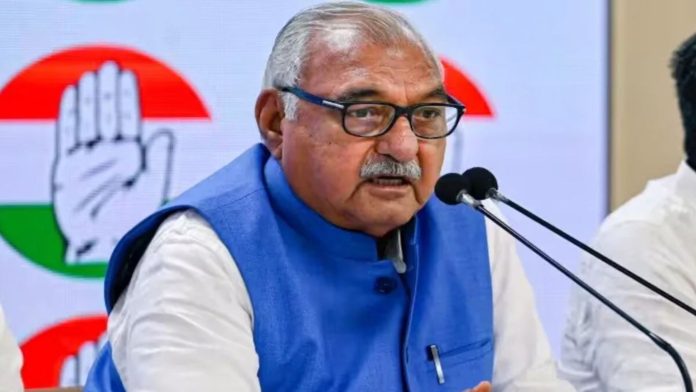In the 2024 Haryana Assembly elections, the BJP secured a majority, marking its third consecutive term in power.
This outcome came as a shock to the Congress, which had been confident of victory. Exit polls had also predicted a Congress win, adding to the party’s dismay when the actual results proved otherwise. Several key factors are being highlighted as reasons for the Congress’s defeat.
Over-Reliance on Jat Community Support
The Congress, under the leadership of former Chief Minister Bhupinder Singh Hooda, placed significant trust in the Jat community, a dominant group in Haryana. Hooda’s influence led to 71 candidates being fielded under his recommendation. However, the party’s neglect of other crucial voter bases, particularly the Dalit community, which makes up 20% of Haryana’s population, has been cited as a major misstep. Kumari Shelja, a prominent Dalit leader, was sidelined, leading to a division of Dalit votes.
Ineffective Election Campaign
While there was a strong anti-incumbency wave against the BJP, the Congress failed to capitalize on it effectively. Star campaigners Rahul Gandhi and Priyanka Gandhi held only four or five rallies, compared to the BJP’s extensive campaign, which saw over 160 rallies. Congress’ limited outreach, with just 60 rallies, hindered their chances of building stronger voter engagement.
Neglecting Alliances with Regional Parties
Overconfidence in winning the election led the Congress to overlook potential alliances with regional parties, a decision that significantly impacted the vote share. This failure to collaborate weakened their position and contributed to their defeat.
Factionalism and Internal Conflicts
Factionalism within the Congress also played a role in the party’s downfall. Rahul Gandhi reportedly struggled to manage internal divisions, which further weakened their electoral strategy. This serves as a crucial lesson for the upcoming Jharkhand and Maharashtra elections.
Negligence Towards Alliances
The Congress’ attitude of dismissing smaller parties and assuming a dominant “elder brother” role also backfired. This approach was evident in Jammu and Kashmir, where the Congress overlooked potential alliances with parties like AAP and CPIM. Political analysts now suggest that alliance members may demand a greater share of seats in future elections.



